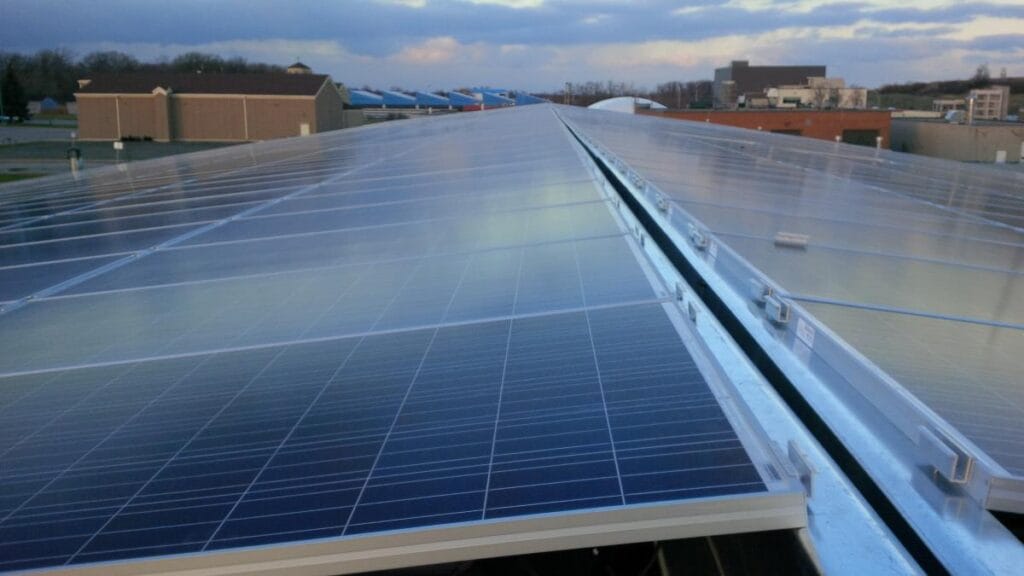Introduction
As energy demand continues to grow, managing peak loads has become essential for both residential and industrial users.
Peak load management involves controlling energy use during high-demand periods, helping to reduce costs and avoid overloading the grid.
For large energy users, this is crucial because peak times often come with increased rates, which can significantly raise electricity bills.
Battery storage is a powerful tool in this effort. By storing energy during low-demand, off-peak times and discharging it when rates are high, battery systems can mitigate peak load costs.
When combined with renewable sources like solar power, battery storage becomes even more effective, providing both economic and environmental benefits.
While Ontario’s Global Adjustment (GA) program also impacts energy rates, especially during peak hours, battery storage and renewable energy help to address these costs efficiently without relying on fossil fuels.
Understanding Peak Loads and Their Impact on Energy Bills
What Are Peak Loads?
Peak loads refer to times when energy demand surges, often due to factors like extreme temperatures or high energy usage across multiple facilities. For residential users, peak loads usually occur during late afternoon and evening hours, while industrial facilities might experience peak demand at varying times depending on their operations.
Financial Impact of Peak Demand
For both residential and industrial customers, peak energy demand can lead to significantly higher electricity bills. This is particularly true in Ontario, where programs like the Global Adjustment (GA) apply added fees based on electricity usage patterns. These extra charges are used to cover the costs of energy infrastructure, renewables, and power stability. Reducing peak load usage, therefore, can lower monthly energy costs and contribute to overall efficiency.
How Battery Storage Helps Manage Peak Loads
Battery Storage Basics
Battery storage systems work by storing energy during low-demand, off-peak periods, and discharging it during high-demand, peak times. By offsetting peak demand with stored energy, users can avoid high peak charges and reduce their dependency on the grid.
Key Benefits of Battery Storage
- Cost Savings: For industrial users, battery storage systems help reduce demand charges, which are often highest during peak hours. For residential users, they cut costs during high-rate periods, making electricity more affordable overall.
- Energy Reliability: Battery systems provide backup power, maintaining continuity even in cases of grid outages. This reliability is especially valuable for industrial operations that require uninterrupted power.
- Environmental Benefits: By reducing dependency on grid power, battery storage allows users to draw more from renewable sources like solar power, cutting down on greenhouse gas emissions associated with fossil fuels.
The Role of Solar Power in Supporting Peak Load Management
Why Solar Energy Is an Ideal Partner
Solar power works seamlessly with battery storage. Solar panels generate renewable energy throughout the day, and when combined with a battery system, this energy can be stored for peak use, ensuring consistent power availability and cost savings.
Kiwi Newton’s solar division specializes in industrial solar installations, providing tailored solutions for businesses looking to integrate renewable energy into their operations. Solar power, when combined with battery storage, not only reduces peak loads but also promotes a sustainable and independent energy supply.
Additional Benefits of Solar
- Sustainability: Solar energy reduces reliance on grid power, resulting in a smaller carbon footprint. For organizations focused on sustainability, this is an invaluable benefit.
- Cost-Effectiveness: By generating free electricity during the day, solar power offsets peak load costs. When paired with battery storage, it maximizes savings by supplying power when rates are highest.
Geothermal Energy as a Supporting Technology for Peak Load Management
What Geothermal Offers
Geothermal energy provides a stable, renewable energy source that can support battery and solar systems. By tapping into consistent ground temperatures, geothermal systems deliver reliable heating and cooling, reducing peak load demand.
Integrating Geothermal for Efficiency
Using geothermal energy alongside battery storage and solar creates a hybrid energy system that reduces strain on the grid. This balance between renewable sources ensures consistent baseline energy, further minimizing peak loads and optimizing energy use.
Steps for Implementing a Comprehensive Peak Load Management System
Step 1: Energy Assessment
Start with a thorough energy assessment to understand your specific energy needs and usage patterns. This helps design an optimal solution that addresses peak load demands while aligning with your sustainability goals. An energy assessment also identifies areas where battery storage, solar power, or geothermal energy can provide the greatest benefits.
Step 2: Custom System Design
Customizing a system with the right mix of battery storage, solar, and geothermal technology is crucial. At Kiwi Newton, we provide tailored solutions that fit both residential and industrial requirements, maximizing energy efficiency while addressing cost-saving goals.
Step 3: Ongoing Monitoring and Maintenance
Regular monitoring and maintenance ensure that peak load management systems operate at their best. By tracking performance data, you can make adjustments as needed to capture further savings and maximize energy efficiency.
How Kiwi Newton Can Help Maximize Energy Efficiency
Battery storage, when combined with solar and geothermal energy, offers a powerful way to manage peak loads and reduce energy costs. Kiwi Newton’s expertise in renewable energy solutions means that we can provide comprehensive, customized systems for both residential and industrial users. Reach out today to learn more about how our battery storage, solar, and geothermal solutions can optimize your energy usage, reduce costs, and contribute to a more sustainable future.
For more information on our solar services, visit Kiwi Solar and explore how we can tailor solutions to meet your specific energy needs.







